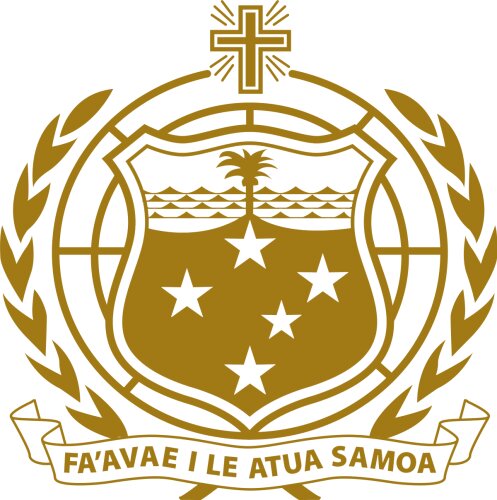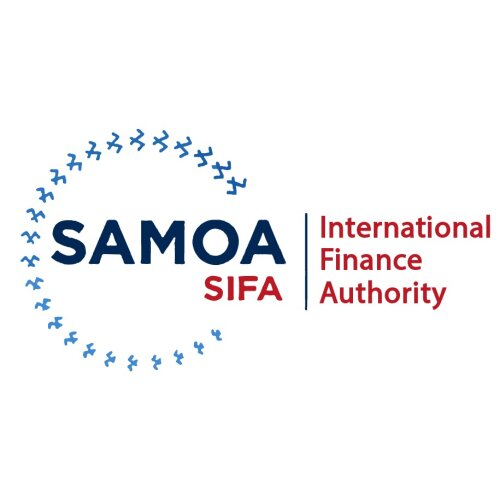Best Funds & Asset Management Lawyers in Apia
Share your needs with us, get contacted by law firms.
Free. Takes 2 min.
List of the best lawyers in Apia, Samoa
About Funds & Asset Management Law in Apia, Samoa
Funds and asset management in Apia, Samoa, involve the professional administration, investment, and oversight of funds or assets belonging to individuals, businesses, trusts, or collective investment schemes. The Samoan legal framework aims to safeguard the interests of investors, promote transparency, and prevent unlawful activities such as fraud and money laundering. The sector is regulated by local laws as well as international standards, especially because Samoa is considered an international finance jurisdiction. Both local and foreign entities operate within this regulatory environment, making it crucial for anyone involved in asset or fund management to understand the unique legal landscape in Apia.
Why You May Need a Lawyer
There are several common situations where legal assistance in funds and asset management may be necessary:
- Setting up an investment fund or collective investment scheme in Samoa
- Navigating complex regulatory requirements or licensing processes
- Drafting or reviewing fund management agreements and disclosure documents
- Ensuring ongoing compliance with anti-money laundering and financial reporting obligations
- Resolving disputes between investors, fund managers, or other parties
- Seeking advice on structuring asset protection strategies
- Acquiring or disposing of significant assets within or through managed funds
- Investigating or addressing potential breaches of fiduciary duty or conflicts of interest
- Understanding tax implications for both local and overseas investors
- Advising on winding up or restructuring funds and asset management vehicles
Engaging an experienced lawyer can help you avoid costly mistakes and ensure your interests are protected throughout any fund or asset management activity in Samoa.
Local Laws Overview
Samoa has developed a legal structure to monitor and support the integrity of the funds and asset management industry while also encouraging foreign direct investment. Some key aspects include:
- Samoa International Finance Authority Act: This act establishes the Samoa International Finance Authority (SIFA), which oversees the licensing and regulation of financial and investment entities, including those managing funds and assets.
- Collective Investment Schemes Act: This legislation governs the formation, registration, and operation of mutual funds and other pooled investment vehicles.
- Anti-Money Laundering and Countering the Financing of Terrorism Act: This act imposes customer due diligence, record-keeping, and reporting requirements on funds and asset managers to prevent illegal financial transactions.
- Companies Act: Provides the legal foundation for incorporating companies, including special-purpose vehicles frequently used in asset management.
- Taxation Laws: Address the treatment of investment income, capital gains, and withholding obligations relevant to funds and their investors.
Samoa's laws reflect its status as an offshore financial centre. There are special considerations for international investors, and ongoing requirements for registration, reporting, and compliance that must be observed by all participants in this industry.
Frequently Asked Questions
What is funds and asset management in Samoa?
Funds and asset management involves the professional handling of money or investments for others, usually through pooled investment vehicles, trusts, or managed accounts. In Samoa, this is regulated to ensure transparency and compliance with international finance standards.
Can foreigners set up investment funds in Apia?
Yes, foreign individuals and organizations can establish investment funds or management companies in Apia by complying with the relevant legal and regulatory requirements, including licensing through the Samoa International Finance Authority.
What are the main regulatory bodies for funds and asset management in Samoa?
The key entity is the Samoa International Finance Authority, which regulates and supervises the funds and asset management sector. Other relevant bodies include the Central Bank of Samoa and the Ministry for Revenue for tax-related matters.
Do I need a licence to manage funds in Samoa?
Generally, yes. Any person or entity intending to offer fund management services must obtain a licence from the Samoa International Finance Authority and meet ongoing compliance and reporting requirements.
What documents are needed to register a fund in Samoa?
Documents typically include the fund’s constitution or trust deed, prospectus, details of managers and directors, compliance plans, and evidence of meeting minimum capital or solvency requirements.
What are the typical tax obligations for funds in Samoa?
Tax obligations vary depending on the structure and residency of the fund and its investors. Some fund structures enjoy specific exemptions, while others may have to file tax returns or withhold taxes on behalf of investors.
How are investors protected in Samoan funds?
Regulatory oversight, mandatory disclosure of investment risks, restrictions on related party transactions, and regular financial reporting are some of the safeguards designed to protect investors in Samoa.
What compliance requirements must fund managers meet?
Fund managers must implement anti-money laundering controls, ensure transparent record-keeping, file regular reports with regulatory bodies, and fulfill fiduciary duties to investors.
What happens if a fund is mismanaged?
If mismanagement or breach of duty occurs, regulators may impose penalties, revoke licences, or require restitution. Investors may also seek compensation through legal action in the Samoan courts.
Can funds registered in Samoa do business internationally?
Yes, Samoan funds often operate internationally, particularly in serving non-resident or offshore investors. However, they must comply with legal requirements both in Samoa and in any jurisdictions where they market their services.
Additional Resources
For further information or assistance related to funds and asset management in Apia, Samoa, the following organizations can provide valuable guidance:
- Samoa International Finance Authority (SIFA): The primary regulator of finance and investment entities in Samoa.
- Central Bank of Samoa: Supervises the country’s overall financial system stability.
- Samoa Law Society: Offers directories of qualified legal professionals.
- Ministry for Revenue: Handles tax administration, including matters affecting funds.
- Chambers of Commerce: Can direct you to local business specialists and financial advisors.
Next Steps
If you need legal assistance regarding funds and asset management in Apia, Samoa, consider taking the following steps:
- Gather all relevant documentation about your funds, investments, and any correspondence with regulators.
- Determine the specific nature of your query or legal issue, such as registration, compliance, or dispute resolution.
- Contact a qualified Samoan lawyer experienced in funds and asset management to arrange a consultation.
- Prepare a list of questions or concerns in advance to make the most of your legal consultation.
- Stay informed about any regulatory changes that may impact your activities in Samoa.
Legal advice can help you navigate the complexities of Samoan fund and asset management laws, protect your interests, and ensure you remain fully compliant with all local and international obligations.
Lawzana helps you find the best lawyers and law firms in Apia through a curated and pre-screened list of qualified legal professionals. Our platform offers rankings and detailed profiles of attorneys and law firms, allowing you to compare based on practice areas, including Funds & Asset Management, experience, and client feedback.
Each profile includes a description of the firm's areas of practice, client reviews, team members and partners, year of establishment, spoken languages, office locations, contact information, social media presence, and any published articles or resources. Most firms on our platform speak English and are experienced in both local and international legal matters.
Get a quote from top-rated law firms in Apia, Samoa — quickly, securely, and without unnecessary hassle.
Disclaimer:
The information provided on this page is for general informational purposes only and does not constitute legal advice. While we strive to ensure the accuracy and relevance of the content, legal information may change over time, and interpretations of the law can vary. You should always consult with a qualified legal professional for advice specific to your situation.
We disclaim all liability for actions taken or not taken based on the content of this page. If you believe any information is incorrect or outdated, please contact us, and we will review and update it where appropriate.












